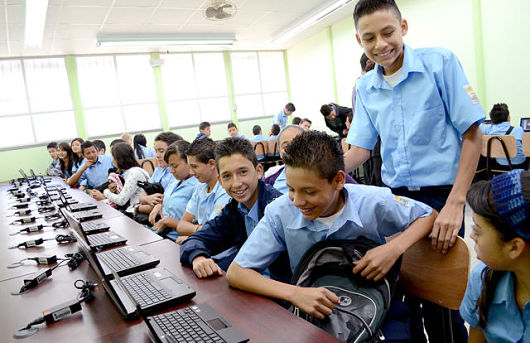Education in Costa Rica – A Progress Report

Education in Costa Rica has been a hot button topic for many years. In 1990, the country pledged to work toward the targets set out by Education for All (EFA) under the direction of UNESCO. EFA is used to help achieve UNESCO’s education goals of quality education for everyone and for education being a fundamental part of development.
During the first years of the initiative to improve the standards of education in Costa Rica, the country faced numerous challenges. Some of these challenges included students repeating class levels, high drop out rates, and limited training courses for teachers. In addition, it was found that the education system suffered from a lack of innovative, and passionate teachers.
Poverty has also had a significant impact on education in Costa Rica. Families where the parents have less than six years of education tended to have a lower income and their children usually did not finish school. This only perpetuated the cycle and government support was required to improve the system overall.
In addition, providing quality teachers has boosted education goals. The government pays education professionals more to attract young bright high school and college graduates to go into education. It encourages students to finish school and have a decent paying job, which helps break the low-level education and poverty cycle. There are training programs aimed to improve the quality of teachers as well.
In rural areas, there are special programs to compensate for the lack of teachers. There is a movement to bring technology in and have one computer per student. This way the students can complete high school with a quality education.
Currently, Costa Rica has a 93.6 percent rate for access to education. For youth literacy (ages 15-24) there is an average of 98 percent. Primary school attendance is about 96 percent of the youth population. Costa Rica has one of the highest literacy rates and school attendance in Latin America and South America.
– Katherine Hewitt
Sources: Costa Rica Gold Country, HDR, Social Progress Imperative, Tico Times, ASCOA
Photo: Tico Times
